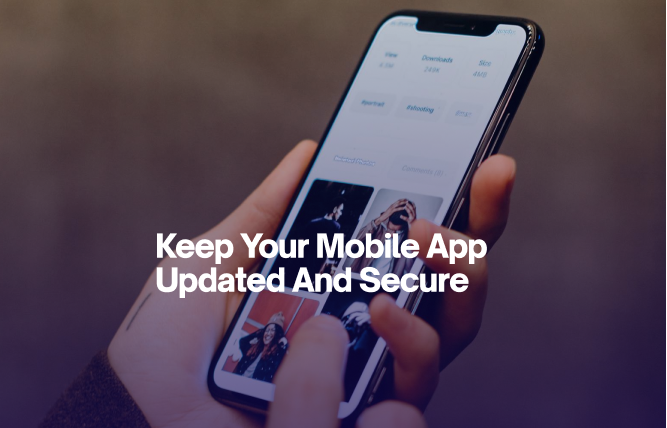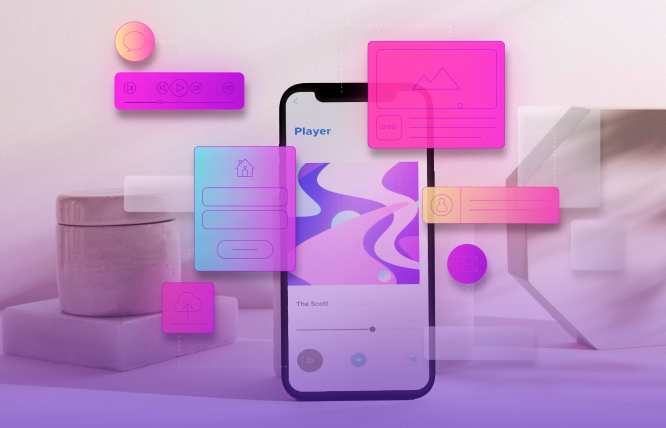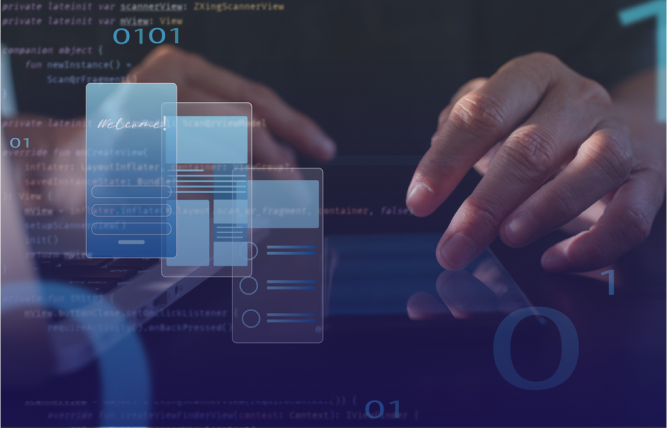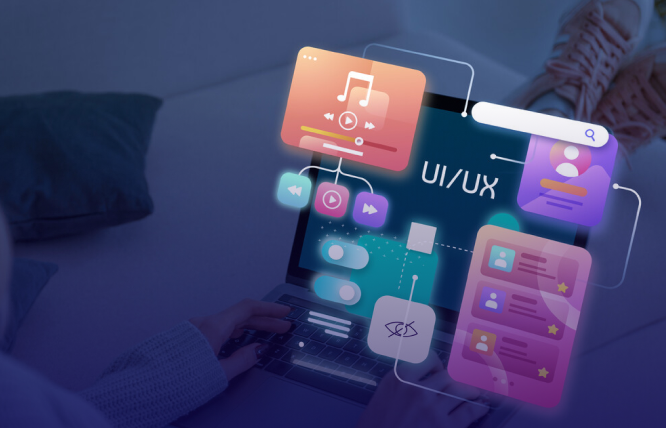Introduction
Considering employee management app development? This article will not only discuss the considerations but also the challenges and benefits of an employee management app developed for your business.
Employee management apps are an instrumental part of any organisation. These applications can help businesses cater to employees and gain meaningful insights into their employees. According to PeopleHum, 57% of surveyed organisations stated that an inability to generate analytics with their old system was a major reason that they were seeking new HR technology.
In this article, we will discuss the impact of employee management app development, things you need to consider before you start getting the app developed and the benefits of an employee management application.
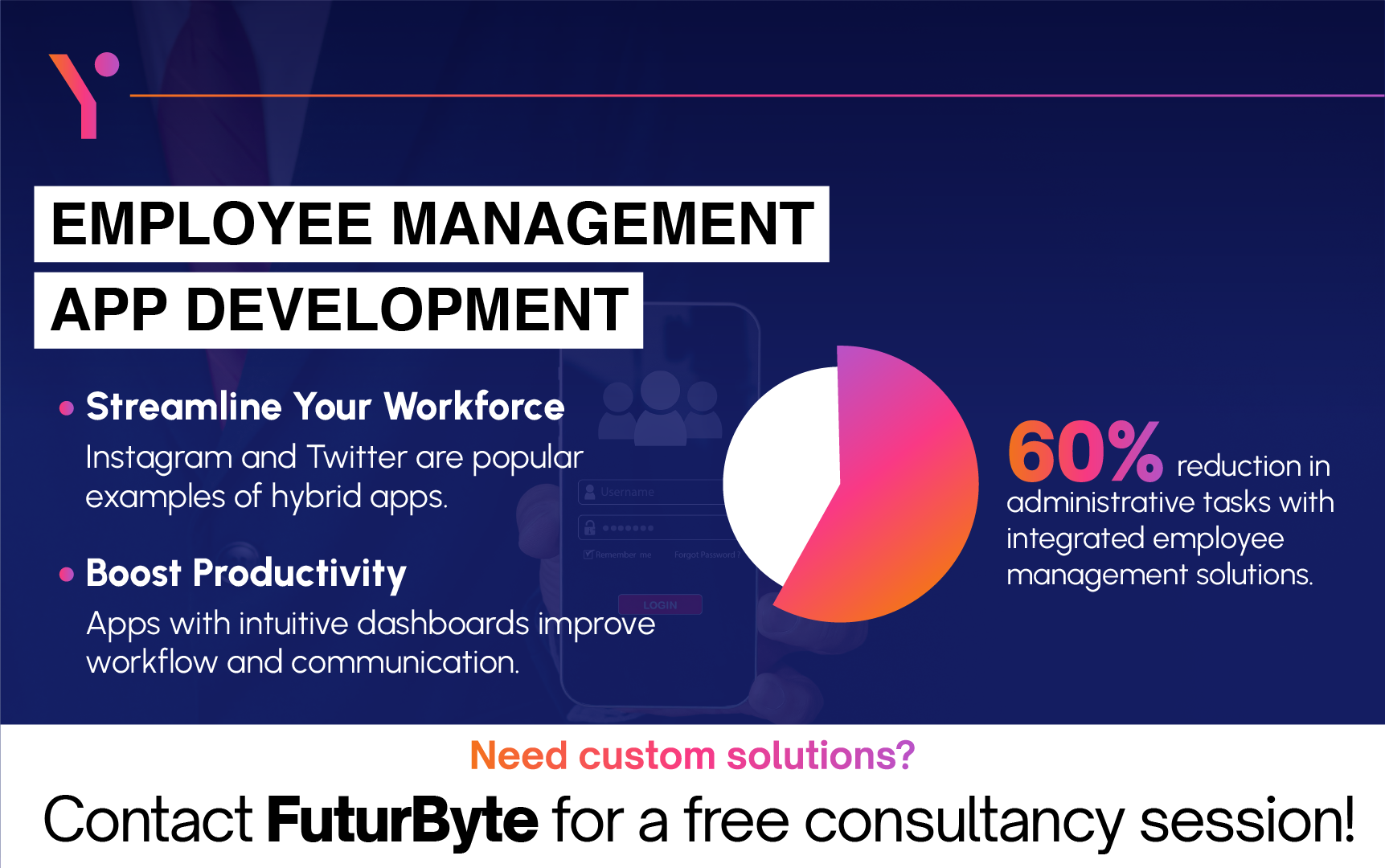
Consideration of Employee Management App Development
Employee management app development can play a vital role in streamlining your processes. Following are some of the things you need to consider before developing this type of application.
Key Features & Functionality
When choosing an employee management app, it’s essential to evaluate the features it offers, such as time tracking, payroll management, attendance monitoring, performance evaluations, and employee communication tools. The app should be equipped to handle your business’ needs and processes, providing a centralised solution for managing your workforce efficiently.
Integration Capabilities
Consider how well the app integrates with your existing software, such as payroll systems, HR tools, and ERP platforms. Seamless integration ensures a smooth flow of data across different platforms, reducing errors and enhancing operational efficiency.
User-Friendly Interface
An employee management app should be easy for both administrators and employees to navigate. A user-friendly interface minimises the need for extensive training and increases the likelihood of high user adoption, ensuring everyone can efficiently utilise the app’s features.
Mobile Accessibility
With the increasing reliance on remote work and mobile devices, it is crucial to choose an app that is accessible on smartphones and tablets. Mobile access enables employees to check schedules, request leave, and update information from anywhere, enhancing flexibility and productivity.
Data Security & Compliance
Employee data is highly sensitive, so the app must have robust security measures to protect personal information. Ensure that the platform complies with data protection regulations, such as GDPR or HIPAA, and that it provides encryption and secure access to employee data.
Scalability
As your business grows, your employee management app should be able to scale with you. Choose an app that can handle a growing number of employees, departments, and locations without requiring a complete system overhaul. Scalability ensures long-term value from the app.
Customisation Options
Every business has unique employee management needs, so it’s important to look for an app that offers customisation options. This includes tailoring workflows, reports, and user permissions to fit your organisational structure and specific HR policies.
Customer Support & Training
Reliable customer support is essential when using a new employee management app. Check whether the provider offers onboarding, training resources, and ongoing technical support to help you troubleshoot issues and get the most out of the platform.
Cost & Subscription Models
Evaluate the pricing structure of the employee management app, including upfront costs, monthly subscriptions, and any hidden fees. Ensure that the cost aligns with your budget and that the app provides good value for the features and benefits it offers.
Reporting & Analytics
Effective employee management relies on data-driven decisions. Consider an app that offers robust reporting and analytics tools to help you track employee performance, catch up on trends, and generate insights for better workforce planning.
Challenges of Getting an Employee Management App Developed
Getting an app developed can often be a difficult process with several challenges for organisations. Following are some of the most seen challenges that organisations face when getting an app developed.
High Development Costs
Developing a custom employee management app can be expensive, especially when factoring in complex features such as payroll integration, performance tracking, and mobile accessibility. Businesses often face budget constraints, and the costs can escalate depending on the app’s scope and functionality.
Integration with Existing Systems
One of the biggest challenges is ensuring that the new app integrates seamlessly with your existing systems, such as HR tools, payroll software, and communication platforms. Poor integration can lead to data silos, redundant processes, and inefficiencies, which may negate the benefits of having an employee management app.
Defining Specific Requirements
Clearly defining the requirements and scope of the employee management app is crucial but can be difficult. Each business has unique needs, and identifying all the necessary features—such as time tracking, attendance, or performance management—can take significant time and research. Failure to adequately define requirements can result in an incomplete or inefficient product.
Ensuring Data Security
Employee data is sensitive and often subject to strict regulatory compliance, such as GDPR or CCPA. Ensuring the app has strong security protocols, encryption, and access controls in place can be a challenge, as failing to secure data could lead to breaches, fines, or legal consequences.
Customisation & Flexibility
Building a highly customisable app that can evolve with the company’s needs presents a challenge. Often, businesses require an app that can be adapted to new workflows, policies, or reporting methods. Balancing customisation with ease of use and performance can be complex.
User Adoption & Training
Once the app is developed, getting employees to adopt and use the system effectively can be difficult. Employees may resist change or struggle with learning new tools. Providing adequate training and ensuring the app is user-friendly are essential for successful implementation.
Long Development Timelines
The time it takes to develop a custom employee management app can be extensive, particularly if the app includes advanced features or integration requirements. Long development timelines can delay the benefits and lead to frustration among management and staff.
Post-Launch Maintenance & Updates
Ongoing maintenance, updates, and troubleshooting are necessary after the app is launched. Bugs and performance issues are inevitable and ensuring that the app stays up-to-date with changing business requirements, regulatory standards, or new technology can be a challenge that requires continued investment.
Managing Vendor
If you are outsourcing development to an external vendor, maintaining effective communication, managing expectations, and ensuring that deadlines and quality standards are met can be challenging. Miscommunication or unclear goals can result in delays or the delivery of an app that does not meet business needs.
Addressing Scalability
Ensuring the app can scale as the company grows is another challenge. Many businesses need an app that can handle an increasing number of employees, teams, and locations over time. Developing an app that remains effective as the company expands requires forward-thinking design and infrastructure.
Benefits of an Employee Management Application
Employee management applications, while challenging, can have several benefits that your organisation can enjoy. Following are the benefits an employee management app offers.
Streamlined HR Processes
Employee management applications automate essential HR tasks such as attendance tracking, payroll processing, and benefits administration. This significantly reduces the manual workload, minimises human errors, and frees up HR professionals to focus on strategic activities rather than repetitive administrative tasks.
Improved Employee Productivity
With features like time tracking, task management, and goal setting, an employee management app allows managers and employees to stay organised and aligned with business objectives. Employees can easily track their tasks, monitor deadlines, and prioritise their work, which boosts overall productivity.
Centralised Employee Data
An employee management app serves as a single source of truth for all employee-related data, from personal details to performance reviews. Having all information in one centralised platform makes it easier for HR and management to access and update data quickly, improving decision-making and operational efficiency.
Enhanced Communication & Collaboration
Many employee management apps offer integrated communication tools such as messaging, file sharing, and notifications. This helps foster better collaboration between teams and ensures employees stay connected, even in remote or hybrid work environments. Employees can communicate seamlessly without relying on multiple tools.
Efficient Performance Management
Employee management applications provide a structured way to monitor employee performance through features like goal setting, performance evaluations, and feedback collection. Managers can easily track progress, provide real-time feedback, and ensure that performance reviews are based on consistent, measurable criteria.
Compliance & Data Security
These applications help businesses maintain compliance with labour laws and regulations by automating payroll calculations, tax filing, and time-off management. Additionally, employee management apps are equipped with security features like data encryption and access controls, ensuring that sensitive employee information is protected from unauthorised access.
Custom Reporting & Analytics
An employee management app allows businesses to generate detailed reports on various aspects of HR and employee performance. This data can be used to identify trends, optimise processes, and make informed decisions about workforce planning, employee engagement, and resource allocation.
Better Employee Engagement
With self-service features, employees can access and manage their personal information, request time off, and review their benefits without needing to go through HR. This empowers employees, promotes transparency, and improves overall engagement and satisfaction.
Time & Cost Savings
By automating key HR functions like payroll, attendance, and benefits management, an employee management app reduces the need for manual processing, which leads to time and cost savings. Additionally, efficient time tracking and project management capabilities help ensure that resources are used effectively.
Scalability
As businesses grow, an employee management app can scale to accommodate more employees, departments, and locations. It allows organisations to manage an expanding workforce without compromising efficiency or performance, making it a flexible solution for growing companies.
Conclusion
Employee management systems are a great way to grow your organisation and streamline your human resource related processes. If you are looking to get a custom employee management application, FuturByte has got you covered.
Our team of app developers will help you create an employee management app which will be designed to meet your business requirements and functionality. Contact us today for a free consultation.
Frequently Asked Questions
An employee management app improves operational efficiency by automating repetitive tasks, reducing human errors, and providing real-time access to employee information. It enhances communication, simplifies performance tracking, and helps businesses remain compliant with labour laws and regulations. Overall, it saves time and reduces administrative costs.
Yes, most employee management apps offer customisable features that can be tailored to fit your company’s specific needs. This could include adding custom fields for employee data, creating unique performance metrics, or configuring workflows to align with your business processes.
Most employee management apps have advanced security features such as data encryption, role-based access control, and multi-factor authentication to protect sensitive employee data. It is essential to choose an app that complies with data protection laws and regulations such as GDPR or HIPAA, depending on your industry.
Yes, employee management apps are highly effective for managing remote or hybrid teams. They provide tools for time tracking, project management, and communication, ensuring that all employees stay connected and aligned with business goals, regardless of location.
An employee management app allows managers to set goals, track employee progress, provide feedback, and conduct performance evaluations in a structured manner. It offers performance analytics and reporting to help managers make data-driven decisions and support employee development.
Have questions or feedback?
Get in touch with us and we‘l get back to you and help as soon as we can!

